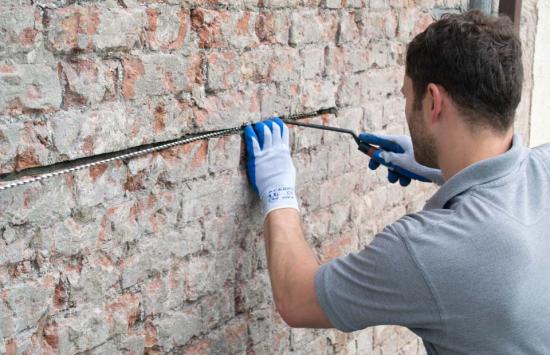Table of Contents
- Introduction
- Understanding Natural Stone Flooring
- The Advantages of Natural Stone Flooring
- Types of Natural Stone Flooring
- 4.1. Marble
- 4.2. Granite
- 4.3. Slate
- 4.4. Limestone
- 4.5. Travertine
- Factors to Consider Before Choosing Natural Stone Flooring
- 5.1. Durability
- 5.2. Maintenance
- 5.3. Aesthetics
- 5.4. Budget
- Installation Process
- Maintenance Tips
- Comparing Natural Stone with Other Flooring Options
- Making an Informed Decision
- Conclusion
- FAQs
Introduction
Selecting the right flooring for your home is a crucial decision, as it not only affects the aesthetics but also the functionality of your living space. Natural stone flooring is a timeless and elegant choice that adds sophistication and value to any home. In this comprehensive guide, we will walk you through the world of natural stone flooring, helping you make an informed choice that suits your style, budget, and lifestyle.
Understanding Natural Stone Flooring
Natural stone flooring is made from quarried rocks that are cut into slabs or tiles, polished, and installed in homes. Each type of natural stone offers unique characteristics, making it a versatile option for homeowners.
The Advantages of Natural Stone Flooring
Natural stone flooring boasts several advantages, including:
- Exceptional durability
- Timeless beauty
- Increased property value
- Natural variations in patterns and colors
- Compatibility with various design styles
Types of Natural Stone Flooring
4.1. Marble
Marble is renowned for its elegance and sophistication. It comes in various shades, and each piece is unique due to its distinct veining patterns.
4.2. Granite
Granite is a durable and versatile option. It is highly resistant to scratches and heat, making it ideal for kitchens.
4.3. Slate
Slate is a rustic choice, often used in outdoor spaces. It’s known for its earthy colors and natural texture.
4.4. Limestone
Limestone offers a classic and timeless look. It’s commonly used in bathrooms and living areas.
4.5. Travertine
Travertine is a popular choice for both indoor and outdoor applications. It has a porous surface that can be filled for a smoother finish.
Factors to Consider Before Choosing Natural Stone Flooring
5.1. Durability
Consider the wear and tear the area will endure. Marble, for instance, may not be suitable for high-traffic areas.
5.2. Maintenance
Some natural stones require more maintenance than others. Assess the level of care you are willing to provide.
5.3. Aesthetics
Choose a stone that complements your interior design and personal style.
5.4. Budget
Natural stone varies in cost, so determine your budget beforehand.
Installation Process
The installation process should be carried out by professionals who can ensure proper sealing and placement to avoid damage and ensure longevity.
Maintenance Tips
Regularly clean your natural stone flooring with a pH-balanced stone cleaner. Seal the stone periodically to maintain its appearance.
Comparing Natural Stone with Other Flooring Options
Natural stone offers a unique look, but it’s essential to compare it with other flooring options such as hardwood, laminate, and tile to make an informed choice.
Making an Informed Decision
Selecting the right natural stone flooring involves a balance between personal preference, practicality, and budget. Consider consulting with an interior designer or flooring expert to help you make the best choice for your home.
Conclusion
Natural stone flooring is a timeless investment that adds value and elegance to your home. By considering factors like durability, maintenance, and aesthetics, you can select the ideal stone that suits your lifestyle and preferences. Make an informed decision and enjoy the beauty and longevity of natural stone flooring in your home.
FAQs
Q1: Is natural stone flooring suitable for all areas of the house?
Natural stone can be used in most areas of the house, but it’s essential to choose the right type of stone for specific spaces. For example, marble may not be the best choice for high-traffic areas.
Q2: How often should I seal my natural stone flooring?
The frequency of sealing depends on the type of stone and its usage. In general, it’s recommended to reseal natural stone every 1 to 3 years.
Q3: Can natural stone flooring be used outdoors?
Yes, certain types of natural stone, like slate and travertine, are suitable for outdoor applications. They can add a touch of natural beauty to your outdoor spaces.
Q4: What is the average cost of natural stone flooring?
The cost of natural stone flooring varies depending on the type of stone and its quality. On average, you can expect to pay between $5 and $15 per square foot for materials and installation.
Q5: Can I install natural stone flooring myself?
While it’s possible to install natural stone flooring as a DIY project, it’s highly recommended to hire professionals for a seamless and long-lasting installation.






